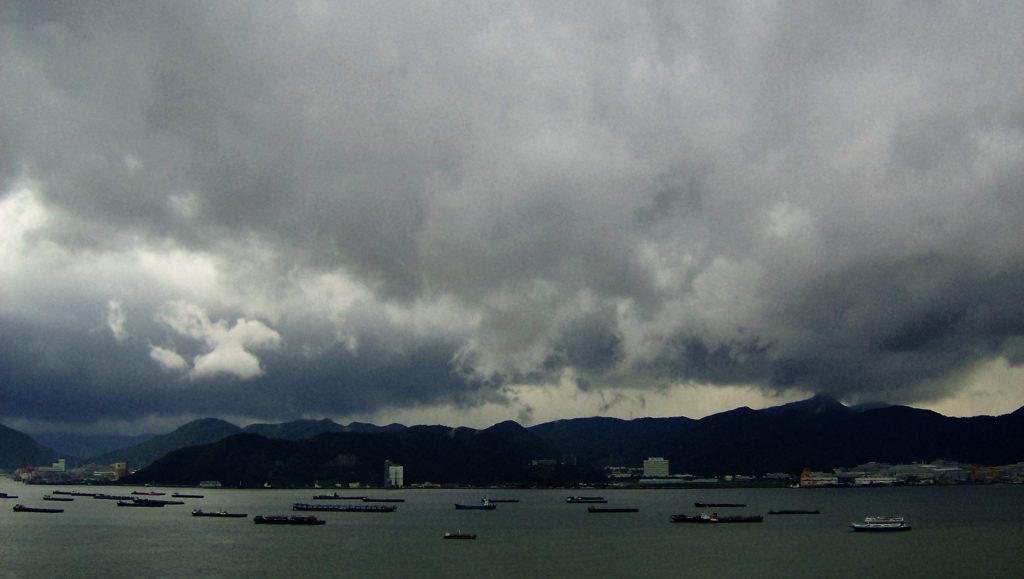The Reason Presidential Character Matters
During the Republican primaries, many people objected to my repeated proofs of Donald Trump’s extreme deficiencies in intelligence, competence, decency, or political principles by saying, “But that’s exactly what America needs now: someone who will just storm in and blow things up, letting the chips fall where they may.”
A simple two-word reply to those apologists: North Korea.
The Trump cultists, along with their silent partners and promoters within the Washington establishment and the click-baiting opportunists in the “conservative media,” were so focused on America’s domestic wreckage after eight years of Obama that they blithely ignored the fact that a president’s most important responsibility — that is, the one over which he is supposed to have the most constitutionally-authorized direct power — is foreign policy, particularly in his role as commander-in-chief of the military that stands virtually alone between the last glimmers of liberty on this planet and a thousand years of darkness. And in matters of war, global threats, civilian carnage, and nuclear fallout, there is no room — not one inch of room — for cheering on “someone who will just storm in and blow things up, letting the chips fall where they may.”
Anyone who wonders why some of us get all worked up agonizing about personal integrity, moral rectitude, and well-defined principles in their presidential candidates (as opposed to “Donald Trump knows how to win!”) need only spend a few minutes observing the current “stand-off” between two men so afflicted with a Napoleon Complex that there would be little surprise in either one of them triggering WWIII just to save face.
Moreover, in this age of international domino effects, remote control warfare, and nuclear weapons, nothing less than life on Earth depends to an absurdly inordinate degree on a handful of ordinary but power-inflated men’s capacity to remain minimally rational under a level of responsibility-induced pressure that most of us will never face. Did any of Trump’s cult members — not to mention Bob Dole, Orrin Hatch, John Boehner, Jeff Sessions, et al — spend one second thinking about that before they followed their populist idolatry or conservative-hating establishmentarianism into the conga line behind the most obviously underdeveloped human ever to occupy the Oval Office?
As for the establishmentarians who supported Trump — overtly or covertly — their reasoning was obvious: They assumed they could plant themselves and their associates in his cabinet and effectively function as the “real President” while Trump played golf and tweeted out his nonsense. But can anyone outside the old boys’ insiders club possibly find this a satisfactory alternative to having an informed, mentally active man of integrity and conscience as the actual, elected President of the United States?
Does anyone beyond the insiders club feel comfortable with a President who is neither capable of understanding complex hypotheticals nor even curious enough to try to understand?
The cultists, for their part, presumably didn’t think any of this through because they believed — à la Alex Jones or, at times, Donald Trump himself — that “the rest of the world,” beyond illegal immigrants and Muslim terrorists, was just a neocon propaganda ploy to promote globalism, or because they half-believed that Trump’s “big, beautiful wall” was real, and that it had magic powers to protect America from ever having to care about the rest of the world again.
So here we sit, with North Korea seemingly on the brink of having compact weaponizable nuclear warheads, and promising daily to wipe America, Japan, South Korea, and anyone else who would challenge them, off the map. (Note to the politically naïve: they never threaten China.) And the nation that history and recent choices have saddled with primary responsibility for negotiating this path of no good options and a lot of bad ones is led by a Twitter-obsessed mean girl with the intellectual acuity of a turnip and the moral compass of…well, of a man who frequently expresses admiration for dictators, and who describes his efforts to evade sexually-transmitted diseases during the 1980s (the decade in which he turned forty, and throughout which he was married) as his “personal Vietnam.”
The Korean quagmire is the product of a century of careless decisions, failed adventurism, and Cold War pragmatism, much of it by American leaders, but also involving Imperial Japan, Soviet Russia, communist China, and (recently) communist-sympathizing South Korean politicians like new President Moon Jae-in and his old boss Roh Moo-hyun. Donald Trump knows nothing about any of this, and wouldn’t bother to read a two-page synopsis of it if you plopped it on his desk with breakfast, or care enough to pay attention if it were read to him as a bedtime story.
North Korea must be presumed to have the capability to rain artillery on Seoul, a metropolis of twenty-five million people, that would almost certainly cause thousands, likely tens of thousands, and potentially hundreds of thousands or even millions of civilian casualties, before anything could be done to disable all of its command structure or launching systems. Does a self-obsessed megalomaniac who is starting his own TV network to present Trump-friendly news, and as President allegedly (and plausibly) receives daily reports on positive media coverage of himself, have the basic moral equipment and seriousness of purpose to understand what that means and how much responsibility — for other people’s lives — rests on the head of anyone who would risk igniting that desperation strike from North Korea?
(Note: Streiff at RedState — a rare intelligent Trump defender — offers the best debunking analysis of the worst-case scenarios about Seoul that I have seen, though even he concedes thousands of civilian deaths. Furthermore, his theory relies heavily on his assumption that Kim Jong-un would actually be playing to win at that point, rather than to go out “heroically,” or alternatively that he wouldn’t reason that the greatest immediate civilian damage might be his best bet of stopping a squeamish enemy in its tracks.)
North Korea is a major and intractable problem, requiring a highly unorthodox solution. That means negotiating this potential civilian catastrophe will require leaders with nerves of steel; deep insight into (rather than admiration for) the psychology of the North Korean tyranny; a willingness to take calculated risks — and not necessarily on the side of aggression — and follow through to the bitter end, even when things may not seem to be going according to plan; an understanding of the full implications of China’s interests in the survival of communist North Korea as a geographic buffer against the democratic South; and the innate humanity to comprehend and give a damn about the fact that most of the potential harm entailed by your risk-taking will hang, not over your own head or those of your voters, but over citizens of a far-off land.
A President facing such a growing crisis need not, and of course cannot, know everything. He needs knowledgeable advisors and strategists. But he must be capable of thinking on his feet, of entertaining conflicting theories with the perspicacity of a wise judge; and he must have a true statesman’s deep, principled concern for both the interests of his own nation and, in the case of foreign embroilments, the long-term fate of civilized human existence on this Earth.
Winston Churchill was that kind of statesman. So was Ronald Reagan. Perhaps you’ll say, “But not every generation has a Churchill or Reagan in the right place at the right time.” That’s true, but it’s no excuse for not trying to find the closest approximation of such leadership that is available. And it’s certainly no excuse for actively supporting the polar opposite of that kind of character when some slightly closer approximation is available.
Does Donald Trump have the kind of mind, the kind of character, that this moment requires? I feel slightly ridiculous even posing the question.



